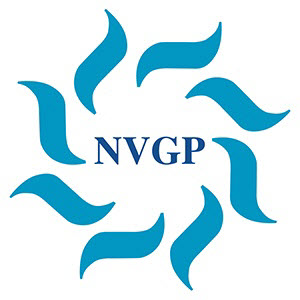A randomised controlled trial for the effectiveness of group interpersonal psychotherapy for postnatal depression
Mulcahy, R., Reay, R. E., Wilkinson, R. B., & Owen, C. (2010). A randomised controlled trial for the effectiveness of group interpersonal psychotherapy for postnatal depression. Archives of Women's Mental Health, 13(2), 125-139
Verslaggever Willem de Haas
Abstract
This study is a randomised controlled trial com- paring outcomes from an 8-week Interpersonal Psychotherapy group (IPT-G) for postnatal depression with ‘treatment as usual’ (TAU), conducted in a routine community setting in the Australian Capital Territory (ACT). Eligible women were recruited and randomly assigned to either IPT-G or TAU conditions. This study compared outcomes on such variables as depressive symptoms, marital adjustment, social support and mother–infant bond at baseline, mid-treatment, end-of- treatment and 3 months follow-up. Participants were also independently assessed using the Hamilton Depression Rating Scale (HAM-D). 50 women completed baseline assessments and were included in the analysis. Comparisons of treatment conditions showed that by end of treatment both the TAU and IPT-G groups significantly improved in terms of mean depression scores, however, the IPT-G women improved significantly more and had continued improve- ments at 3 months post therapy. Furthermore, women who received IPT-G displayed significant improvement in terms of marital functioning and perceptions of the mother-infant relationship compared to TAU participants. These findings highlight the potential benefits of an interpersonally based treatment, which not only improves outcomes for the mother but also potentially for the couple and the infant when compared to usual care
Wat betekent dit voor de nvgp?
Een gerandomiseerd-gecontroleerd onderzoek komen we in ons vak niet vaak tegen. Hier wel en met een overweldigend positieve uitkomst voor de groepstherapie variant (IPT groepstherapie) vergeleken met de controle-groep die de standaard behandeling voor postnatale depressie kreeg: antidepressie-medicatie, verpleegkundig moeder-kind advies, individuele counseling of psychotherapie, groepstherapie (niet IPT).
In beide situaties nam de depressie af maar in de 8 sessies IPT-groepstherapie significant meer: recovery rate IPT groep VS Standaard hulp: 69,6 % vs 33,3 %. Dat is nog eens positief nieuws voor de groepstherapie!. Bovendien waren de resultaten ook stabiel in een 3 maands follow upmeting en waren er positieve gevolgen voor de moeder-kind relatie, en de partnerrelatie.
Het waardevolle van dit onderzoek komt ook nog eens naar voren in de beschrijving van de typische voordelen voor de groepssetting. De auteurs noemen de groepsetting een belangrijk Interpersoonlijk laboratorium waarin de moeders veel van elkaar konden leren om hun depressie te overwinnen. Een heel belangrijk artikel voor de groepstherapie
| Relevantie voor richtlijnen voor depressie | O O O O O |
| Relevantie voor onderzoek | O O O O O |
| Relevantie voor groepsbehandeling | O O O O O |
| Relevantie voor teamcoaching | O O O O O |
| Relevantie voor groepsdynamicaopleiding | O O O O O |
| Relevantie voor groepstherapieopleiding | O O O O O |
| Relevantie voor KP opleiding | O O O O O |
